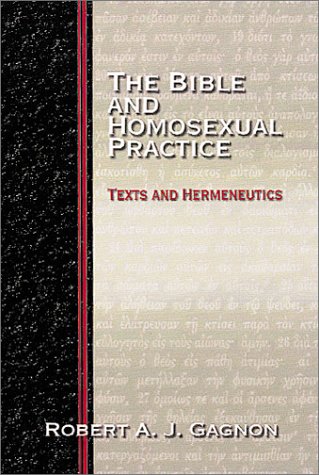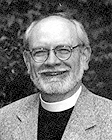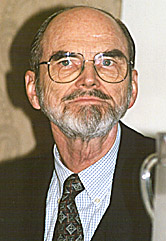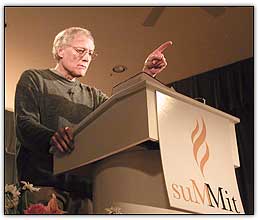|

Robert A. J. Gagnon Home
Articles Available Online
Response to Book Reviews
Material for "Two Views"
Material for "Christian Sexuality"
Answers to Emails
College Materials Robert Gagnon.htm
|
If you
need a free PDF reader,
click here.
Praise for The Bible and
Homosexual Practice
PDF
HTML
A list of blurbs,
reviews, or comments that testify to the book's significance for the church's
debate on the Bible and homosexual practice. The scholars providing
such material are, in alphabetical order:
Kenneth Bailey, James
Barr, C. K. Barrett, John Barton, Jürgen Becker, Brevard Childs, C. E.
B. Cranfield, James D. G. Dunn, E. Earle Ellis, Gabriel Fackre, Robert
F. Hull; Craig
Koester, I. Howard Marshall, Ulrich Mauser, Scot McKnight, Bruce
Metzger, Jerome Murphy-O’Connor, Martti Nissinen, John Nolland,
Richard Ostling, J. I.
Packer, Marion Soards, Max Stackhouse, Willard Swartley, Charles H.
Talbert, Frank Thielman, Duane Watson, Gordon J. Wenham, Stephen Westerholm, and David
F. Wright.
|
 |
"Prof. Robert Gagnon's
Response to Eric Thurman's Review in Review of Biblical Literature:
On Paying Attention to Paul's Reasons for Rejecting Homosexual
Practice"
(Nov. 2003)
PDF
HTML |
|
A
response to a doctoral student who is a disciple of the radical
postmodernist and deconstructionist New Testament scholar, Stephen Moore. Thurman argues that it is
"intellectually irresponsible" of me to "privilege Paul's intent." He
thinks that Paul's view on homosexual practice should be treated as
the product of misogyny (women hating), irrespective of whether
Paul opposed homosexual practice primarily on the grounds that it threatened
male dominance over women. According to Thurman, because Paul inhabited a "symbolic world"
predicated on "female inferiority," Paul's stance on homosexual
practice can be criticized as misogynist even if the evidence
indicates that his main motivation lay elsewhere (i.e., the Genesis
creation paradigm and attention to male-female structural
complementarity). If you are confused by Thurman's rationale, rest
assured: the problem does not reside in your thinking.
|
|

|
"Prof. Robert Gagnon's Response
to Prof. William Countryman's Review in Anglican Theological Review: On Careful Scholarship"
(Sept. 2003)
PDF
HTML |
A response to a
partisan attack on my work by a homosexual Anglican New Testament scholar
who teaches at The Church Divinity School of the Pacific in Berkeley,
Calif. Countryman--who thinks that "the gospel allows no
rule against" bestiality, polygamy, homosexual acts, pornography,
incest not involving children, and prostitution--charges me with a
lack of care in exegesis and argumentation. He cites only a few
alleged examples but even these underscore his own scholarly
carelessness. This response will be particularly helpful for those who
want further information about: (1) why Jude 7, in addition to
the Sodom story and the historical Jesus, provides further evidence of
a consensus biblical position against homosexual practice; (2) why
a creation/nature argument resides in the biblical text and so is
not a natural law theory anachronistically imposed from outside the
text; and (3) why cultural supports for homosexual behavior
are likely to increase the incidence of homosexuality.
|
|
 |
"Prof. Robert Gagnon on Prof.
Jack Rogers's Comments: Misrepresenting the Nature Argument"
Dec. 2001
PDF
HTML |
|
Jack Rogers,
emeritus professor of theology at San Francisco Theological Seminary
and moderator of the 213th (2001-2002) General Assembly of the
Presbyterian Church (PCUSA) delivered an address entitled
"The Church We Are Called To Be" to
the 2001 Covenant Network Conference (Nov. 2). In the address Rogers
took a swipe at my book, claiming that it was "not actually based on
revelation but on natural law"; moreover, that "we are not really
arguing about the Bible . . . but about prevailing assumptions in
contemporary culture." I take on this misrepresentation of my work in
three sections: "Scripture and nature as first- and second-order
arguments"; "On not confusing the meaning of "nature"; and "Arguing
about the Bible and a truncated image of the "accepting Jesus."
For a more recent, and comprehensive, rebuttal of Rogers's views, see
my article "Bad Reasons for Changing One's Mind: Jack Rogers's Temple
Prostitution Argument and Other False Starts" (pdf
and
html).
|
|
 |
"Prof. Robert Gagnon on Prof.
Elizabeth
Johnson's Review: A Witness Without Commandments?"
Jan. 2002
PDF
HTML |
Beth
Johnson, professor of New Testament at Columbia Theological Seminary
in Atlanta, wrote a review of my book shortly after we debated one
another at First Scots Presbyterian Church in Charleston, SC. The
review was entitled:
"The Bible: Rule Book or Witness to God?"
as if the Bible could only be a witness to God if it lacked
commandments. This response refutes that supposition as well as
various inaccurate representations of my book's message.
|
|
 |
"The Wink-Gagnon Exchange Published in
Christian
Century"
June 2002
PDF |
In the June
5-12, 2002 issue of Christian Century, Walter Wink--who had
once complained about "how sub-Christian most of [the debate about
the Bible and homosexuality] has been," urging others "to transcend
our verbal violence and put-downs, and to learn how to love,
cherish, and value those whose positions are different from our
own"--wrote a vitriolic, ad hominem review of my book, "To Hell With
Gays?" (pp. 32-34). Christian Century not only
commissioned/published the review and supplied the inflammatory
title (which Wink says that he likes) but also did so after
editorializing in the immediately preceding issue about the need to
"treat with dignity others who hold contrary opinions," especially
in debates about homosexuality. After some prodding, Christian
Century agreed to publish my abbreviated 3000-word response to
Wink's review, which appeared in the Aug. 14-27, 2002 issue (pp.
40-43)--though only on the condition that Wink be allowed an
additional reply of equal length to my article (pp. 43-44; note:
Wink chose, however, to contribute a reply of only 1000 words). My
response discusses: (1) A consensus on Paul? (2) The relevance of
the creation stories; (3) The use of analogies; (4) Wink's claim
that "The Bible has no sex ethic"; (5) The social-scientific
evidence; and (6) Serial, unrepentant sin and its consequences.
Readers interested in a full-length version of my response should
consult "A Response" immediately below. Christian Century
allowed me a 700-word follow-up letter, which appeared in the Oct.
9-22, 2002 issue (p. 67). Readers interested in my full-length
rejoinder to Wink's reply should consult "A Rejoinder" below. Wink
was allowed a response to my letter but apparently opted not to respond.
|
"A Response to Walter Wink's
Christian Century Review"
PDF
The
full-length (12,000-word), unpublished version of my published
response to Wink's review of my book.
|
|
"No Universally Valid Sex Standards? A Rejoinder
to Walter Wink's Views on the Bible and Homosexual Practice"
PDF
The
full-length version of my 700-word rejoinder
to Wink's reply, published in Christian Century. The piece
takes on Wink's claim that the notion of divine judgment that might
exclude anyone from the kingdom of God is "reprehensible," a "cruel
abuse of religious power," and "unworthy of . . . Christian faith";
and that the biblical portrait of Jesus proclaiming such judgment
should be attributed to Matthew's "unresolved anger." Excluding all
judgment material found only in Matthew's Gospel (as well as John's
Gospel), I show how the theme of divine judgment and potential
exclusion from God's kingdom constitutes a significant part of Jesus'
message in the remaining strands of Gospel tradition. Originally
this rejoinder also contained an extended discussion of Wink's claim
that there are no universally valid sex precepts, given the defunct
status of an alleged sixteen biblical sexual mores. That material was
moved to an article critiquing Wink's own view of the Bible and
homosexuality, under the same title and published in Horizons in Biblical Theology and
now available online
here.
|
|





